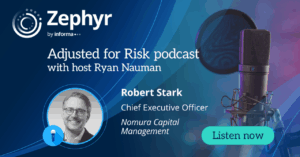Customer Relationship Management (CRM) systems were designed to be the operational core of advisory firms; the hub in the hub-and-spoke model. The goal was clear: centralize client data, enable follow-up, support compliance, and streamline service. In theory, these platforms were intended to enhance advisor productivity and client engagement. In practice, however, many advisors find their CRM adds friction instead of removing it.
As a sales leader who has gone to market in several industries, I am here to tell you that every salesperson in the history of sales absolutely detests updating CRM. It is the modern equivalent of paperwork, and there is no denying that financial advisors are in the sales profession.
CRM relies on manual data entry. Advisors must recall conversations hours after meetings, typing in key details as memory fades. This leads to inconsistent data, lost context and documentation that may satisfy compliance requirements but adds limited value to the client experience. What was intended to be a productivity booster has, for many firms, become little more than a digital filing cabinet.
This disconnect between intent and reality highlights a broader challenge with wealth management technology. Time-consuming administrative tasks such as documentation, follow-ups, and internal reporting limit advisor productivity and reduce time for high-impact, client-facing work. According to McKinsey & Company, advisors spend up to 70% of their time on non-revenue-generating tasks. Furthermore, CRMs are frequently cited as one of the most burdensome pieces of an advisor’s tech stack. These findings underscore that current systems no longer align with modern advisors’ evolving needs.
Yet, despite continued investment in digital tools, many platforms remain fragmented, overly complex, or disconnected from the natural rhythm of advisor-client interaction. The industry is at an inflection point: the tools advisors rely on must evolve to truly support the work of building lasting client relationships.
The most promising shift is the rise of artificial intelligence (AI) integrated directly into the systems advisors already use. Purpose-built AI can act as a real-time collaborator, transcribing conversations, highlighting key discussion points, and generating accurate, editable notes within the existing workflow without requiring extra platform switching or risky data sharing.
This marks a seismic shift from passive data storage to active, intelligent client meetings. Two major wealth management CRM vendors -Salesforce and Wealthbox- are innovating here, integrating AI meeting assistants. Other fintech providers, including Nitrogen, are doing the hard work of capturing client meeting intelligence in CRM as part of the software’s broader risk tolerance, portfolio construction and proposal workflow.
When documentation is automatically captured and translated into high-quality, actionable records, it stops being a burden and becomes an advantage. Advisors can spend less time on BS data entry and more time where they’re needed most: engaging with clients, delivering insights, and deepening trust. Firms benefit too with enhanced personalization, stronger service consistency, and reduced compliance risk, all without adding to the advisor workload.
CRM isn’t obsolete, but it is overdue for reinvention. The most effective systems of the future won’t demand more from advisors; they’ll quietly work in the background, capturing every critical detail, freeing up time, and allowing advisors to focus fully on their clients.
As client expectations rise and technology evolves, firms that reimagine their CRM today stand to gain a real advantage, not just in operational efficiency, but in productivity, client experience, and long-term growth.






